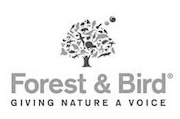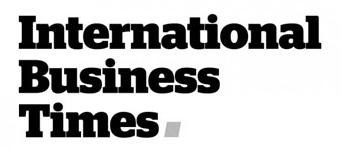If you are neurodiverse, work or live with neurodiverse people, these resources are for you.
They are a starting point for your journey of self-discovery to help build a more inclusive world.
Please note, every neurodiverse person is different, and these resources are intended as an introductory guide only.
-
Autism is a neurological difference that affects how people experience, process and interact with the world around them.
Autistic people have many unique strengths and also some challenges or differences.
Please note that the challenges of autistic people are not deficits and are often due to living in a world that isn’t designed for their needs.
Examples of autistic challenges and strengths include:
• Sensory processing - being more affected by smell, light, touch, sound and taste than the general population. This can be challenging and cause tiredness or meltdowns/shutdowns (see below).
However, sensory sensitivity can also be a great strength that allows autistic artists, writers and other creatives to capture and convey rich experiences of the world.
• Socialising – preferring different types of socialising to non-autistic peers, finding some social situations challenging or tiring, or feeling out of place in the general population.
Contrary to popular misconception, autistic people can be extroverted or introverted and – like all people – desire connections and close relationships that meet their social needs.
• Emotional differences – such as finding it difficult to verbalise feelings, or feeling overwhelmed by strong emotions and empathy.
This emotional awareness and empathy can be draining, but it is also an asset in many professions, especially healthcare. Get inspired by the mission and work of Autistic Doctors International.
• Communication differences – such as preferring direct speech and clear instructions, being non-speaking, or having a unique sense of humour and wit.
• Enthusiasms and deep interests that are vital for their wellbeing and satisfaction in life.
Some of the world’s most notable inventors, scientists, entrepreneurs, climate activists, and creatives are autistic. It is thanks to their interests and persistence that humanity has developed in such remarkable ways.
• Meltdowns and shutdowns - due to being overwhelmed by sensory information and/or cognitive overload.
• Executive functioning differences – such as finding specific skills and tasks more tiring or difficult than their non-autistic peers.
In contrast, autistic people find some tasks much easier than non-autistic people and are often noted for their intense hyperfocus, ability to concentrate for long periods of time, extreme attention to detail and exceptional research skills.
Please note, many neurodivergent people learn to mask their challenges early in life, and so any issues they are experiencing may not be visible to you.
Some of the features of being autistic, such as sensory sensitivity, emotional differences, and deep interests are also common features of giftedness and other types of neurodivergence. This can lead to people being misdiagnosed or to missed diagnoses.
-
Each autistic person is unique and has their own strengths and challenges.
The term ‘autism spectrum’ does not refer to people being ‘more’ or ‘less’ autistic. Instead, it points to the range of experiences of autistic people.
-
Asperger Syndrome was a diagnosis used to describe people who had features of being autistic but didn’t have delays in communication and language.
It is no longer an official diagnosis but some people still prefer to use Asperger’s, Aspie, or Asperger’s Syndrome to describe themselves.
In recent years, the term Asperger’s has fallen out of popularity with some autistic people due to its connection with Nazi eugenics.
You can find out more about this here:
The truth about Hans Asperger’s Nazi collusion.
Asperger’s Syndrome, the Nazi Regime and the dangerous Power of Labeling People.
-
Identity-first language is saying ‘I’m autistic’ or ‘they are autistic’ rather than saying ‘I am a person with autism’ or ‘they have autism’.
Identity-first language is an important part of respecting and celebrating autistic people - rather than viewing autism as a deficit, disease, dysfunction, or something people ‘have’.
Surveys have shown that most autistic people prefer identity-first language, but it is always best to ask how people prefer to describe themselves.
Some autistic people also prefer not to be labelled using pathologising or medical terms such as ‘has ASD/Autism Spectrum Disorder/Asperger’s’, ‘is diagnosed with autism’, or ‘is on the autism spectrum’.
-
Neurodiversity is a term used to describe people who have neurological differences such as being autistic, ADHD, dyslexia, dyscalculia etc.
Rather than labelling some people as ‘normal’ and others as ‘weird’, ‘different’, or ‘dysfunctional’, the term neurodivergent was created to represent and celebrate people whose brains are wired differently.
Neurotypical is used to describe people whose brains are within the standard range for the general population.
The neurodiversity movement celebrates the diversity of human brains and asserts that the human race is improved by having different kinds of brains – just like biodiversity in nature.
By having a range of brains in society, we have more strengths and can all work together for the good of our world.
Both neurodivergent and neurotypical people are essential for humanity to thrive.
-
Typically, the word ‘gifted’ describes people who are intellectually gifted and have a higher IQ than most people.
Giftedness is thought to make up less than 5% of the general population and there are subclasses within that 5%: mild, moderate, high, exceptional and profound giftedness.
Being gifted is more than just a high IQ score – it is a unique way of being in the world.
The neuroscience of giftedness has shown us that gifted people have larger regional brain volume, greater connectivity across brain regions, increased brain activation, greater sensory sensitivity, and increased brain areas associated with emotional processing.
All of this means gifted people experience and process the world differently than neurotypical people.
Giftedness is not about being superior to non-gifted people; it is about being different - not more and not less.
Gifted people are often described as complex, driven, and intense, and show advanced development in one or more areas. Holistic models of giftedness describe the different areas of giftedness as including intellectual, emotional, creative, sensual, physical, and existential giftedness.
One of the greatest misconceptions about being gifted is that it makes life easier and that gifted people don’t need help or support. It is no easy task managing an intense and complex brain! Gifted people need understanding and often support in order to thrive.
Examples of gifted challenges and strengths include:
• Sensory processing - Experiencing smell, light, touch, sound and taste in more complex and profound ways than the general population.
Such rich sensory processing can be challenging and cause tiredness when the brain gets overwhelmed. However, sensory sensitivity can also be blissful, provide a sense of awe, and be an asset to gifted creatives.
• Socialising – preferring different types of socialising to non-gifted peers (often focussed on complexity, self-development, and existential questioning).
Gifted people can find day-to-day social situations unfulfilling; feeling isolated and lonely in a world that does not meet their needs or understand them.
Joining gifted communities and spending time with gifted peers provides a sense of wellbeing, mirroring and belonging that enriches their lives.
• Emotional differences – such as overexcitabilities, feeling overwhelmed by strong emotions and empathy, being sensitive and intuitive. Many gifted people have a deep, felt sense of responsibility to right the wrongs in the world.
These emotional differences can be draining for gifted people, but they can be great assets professionally and personally when managed with care.
• Multiple interests and pursuits – Many gifted people are lifelong learners, have numerous deep interests, and enjoy multipotentialite careers.
Gifted people see our world differently and have the capacity and potential to solve our greatest problems, lead the way with innovation, and create a future where nature and humanity thrive together.
However, not every gifted person feels drawn to create in world-changing ways, and they should never be pressured to do so.
• Burnout and bore-out – Gifted burnout occurs when gifted people become exhausted from unrealistic expectations, trying to conform to ‘the norm’, their inner drive and perfectionism, living intensely, and a lack of rest.
Gifted bore-out is also a real challenge for gifted people and can lead to disillusionment and depression.
• Executive functioning differences – such as meta-thinking and mind-matrixing, finding some ‘easy’ tasks harder than non-gifted people and yet excelling in other areas.
You can find out more about executive functioning and giftedness in this Executive Functioning and Gifted Children article.
Some of the features of being gifted are also common features of other types of neurodivergence. This Tending Paths Venn Diagram shows where giftedness, ADHD and autism overlap.
-
Savantism or being a savant refers to people who have an exceptional talent or ability that is paired with a developmental difference.
Estimates for how rare savantism is range from “exceedingly rare” and less than 1% of humanity to 10% of autistic people also being savants.
Savant skills are diverse and include extraordinary musical, artistic, mathematical and memory abilities.
-
Twice exceptional or ‘2e’ refers to intellectually gifted people who also have a learning difference, such as being autistic, ADHD, dyslexia etc.
Twice-exceptional people often ‘fly under the radar’ and don’t receive adequate support for their unique strengths and challenges. This is because either their giftedness masks their learning differences, or their learning differences mask their giftedness.
Estimates suggest that fewer than 0.2% of the general population are twice exceptional.
-
There are many organisations and resources about autism, giftedness and neurodiversity. Below is a selection of the ones I have found interesting and helpful in my journey so far.
Neurodiversity
Neurodiversity as a Competitive Advantage
Unlock Creativity by Making Space for Neurodiversity in the Workplace
Employ for Ability – Turning Unique Skills into Careers.
NeuroEmploy – Neurodiversity in Employment
Neurodiversity: A Guide for Public Sector Recruitment
Neurodivergent Remote Jobs Board
Autism
Temple Grandin TED Talk – The World Needs all Kinds of Minds
Autism Speaks – This US organisation is avoided by many autistic people as it sees autism as something to be ‘cured’ and diminishes autistic people.
Does Autism Represent the Next Stage of Human Evolution?
Autism and Screen Time: Special Brains, Special Risks
Soothing your Senses Checklist
Autistic & Gifted Burnout
‘The Battery’s Dead’: Burnout Looks Different in Autistic Adults
Dr Tony Attwood – What is autistic burnout?
The Effects of Cortisol on Individuals with ASD
Recovering from Autistic Burnout
How to Help with Burnout in Gifted Kids
Nervous System School by Jessica Maguire
Gifted Burnout if Real - How to Spot the Signs & Overcome It
Giftedness
SENG – Supporting Emotional Needs of the Gifted
TED Talk: Gifted, creative and highly sensitive.
Misdiagnosis and Dual Diagnosis of Gifted Children
The Strengths, Needs and Vulnerabilities of Gifted Employees
Giftedness in the Workplace: Can the Bright Mind Thrive in Organizations?
Bore-out: A Challenge for Gifted Adults.
Productivity, Potential, and Cultural Scripts: Making Room for Our Full Gifted Selves
Gifted Adults & Second Childhoods: Revisiting Essential Stages of Development
Helping Parents Understand their Profoundly Gifted Children
Career Development for the Gifted
Neuroscience of Giftedness: Greater Sensory Sensitivity.
Neuroscience of Giftedness: Physiology of the Brain
IQ and Educational Needs.Understanding very, very smart people.
Emotional Intensity in Gifted People.
What Your Therapist Needs to Know About Giftedness.
Social and Emotional Issues of the Gifted.
Twice Exceptionality
-
Neurodiversity
Divergent Mind: Thriving in a World That Wasn't Designed for You
Autism
Neurotribes: The Legacy of Autism and the Future of Neurodiversity
Spectrum Women: Walking to the Beat of Autism
Been There. Done That. Try This! An Aspie’s Guide to Life on Earth
Uniquely Human: A Different Way of Seeing Autism
Drama Queen: One Autistic Woman and a Life of Unhelpful Labels
The Electricity of Every Living Thing: A Woman’s Walk In The Wild To Find Her Way Home
Novels with Neurodivergent Characters
Giftedness
Why Smart People Hurt: A Guide for the Bright, the Sensitive, and the Creative
Your Rainforest Mind: A Guide to the Well-Being of Gifted Adults and Youth
Misdiagnosis and Dual Diagnoses of Gifted Children and Adults
Mellow Out, They Say. If I Only Could
Off the Charts: Asynchrony and the Gifted Child
Misdiagnosis and Dual Diagnoses of Gifted Children and Adults.
Twice Exceptionality
-














